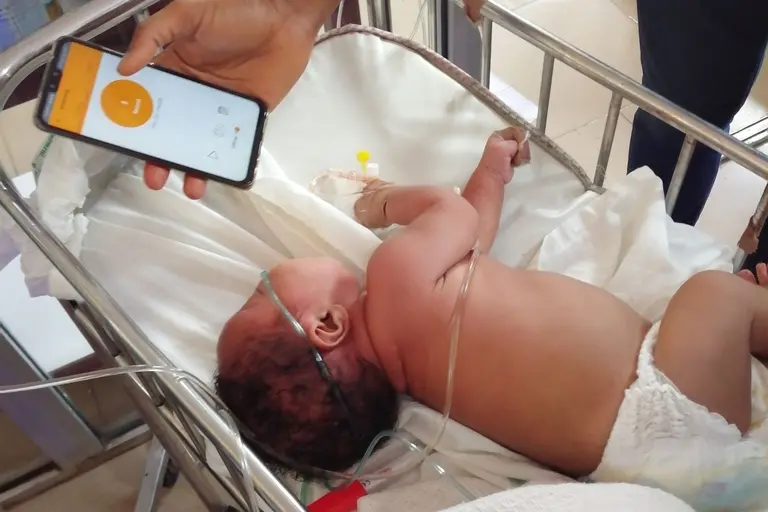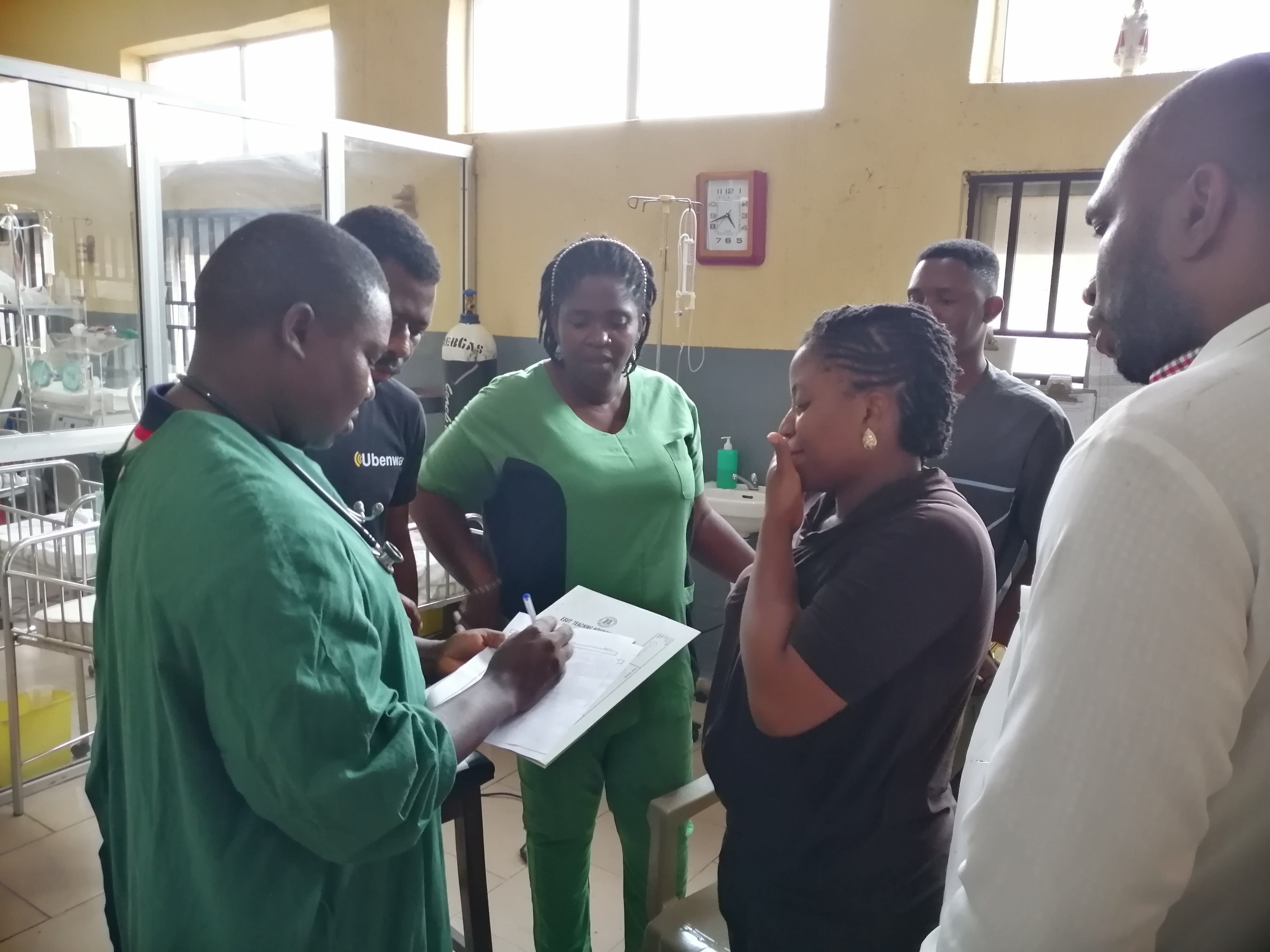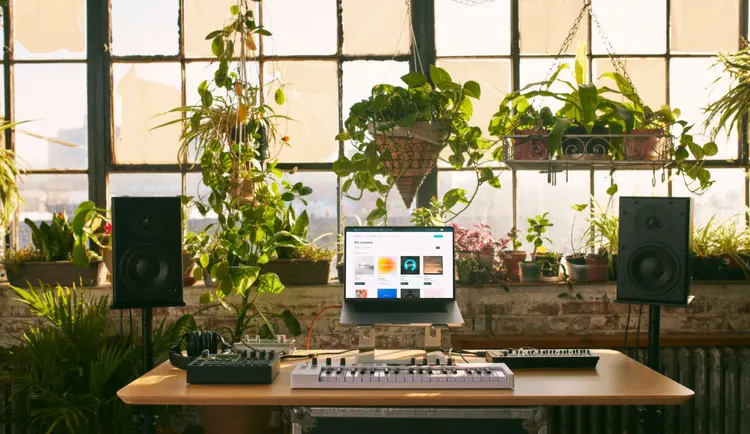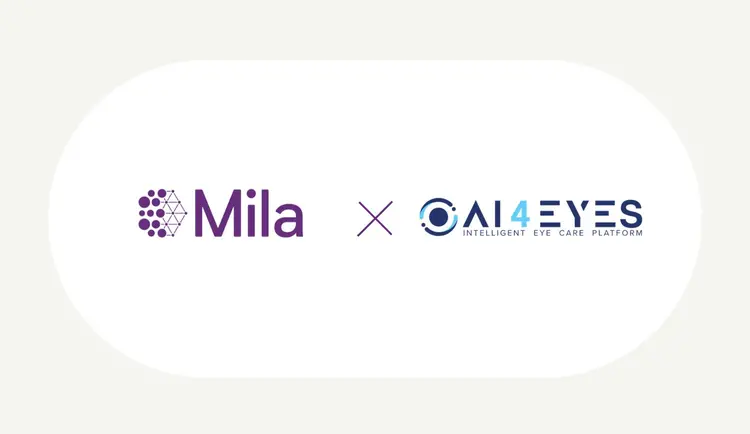
Ubenwa is a Mila startup born from a deeply personal mission to revolutionize healthcare access. It’s a story of how babies’ cries, once a source of confusion for new parents, could become a key to better understanding their well-being, and how listening to patients’ and doctors’ needs helped inspire an initiative to improve access to healthcare in Canada, all through the power of AI.
Background
For years, Charles Onu, founder of Ubenwa, was torn between two passions: medicine and mathematics. After years as a software engineer, his search for a way to apply his mathematical skills to healthcare led him to Mila, to the growing field of machine learning and to the world-renowned researchers in Montreal. There, during his Master's and PhD, his focus turned to a unique and overlooked signal: the sound of a baby's cry.
He observed that experienced doctors could often tell if a baby was unwell just by the sound of their cry. "If there's something that human doctors have learned to listen to and detect abnormalities in babies’ cries, then those patterns exist in the cry," Onu reasoned, "so it makes sense that we can teach machines how to learn those patterns as well".
This insight became the foundation of his research, treating the infant voice not just as a sound, but as a vital sign. The potential for impact was so immense that the path of an academic shifted to that of an entrepreneur. With the support of Mila and its community of world-class researchers, Ubenwa was born.
From the lab to the living room: Nanni AI
Ubenwa’s first product was Nanni AI, a tool designed to interpret the meanings behind an infant’s cry. Onu and his team embarked on a massive, three-year clinical trial, partnering with five hospitals across Canada, Brazil, and Nigeria to collect a diverse and robust dataset. Previously, the only publicly available database consisted of just 70 samples — Ubenwa’s study collected a staggering 10,000 clinically annotated cry samples, the largest study on infant cries ever conducted.
Using this data, the team trained a neural network to analyze spectrograms – visual representations of sound – to identify the subtle characteristics of cries associated with different states, such as hunger, fussiness, or pain. The AI achieved an average of 89% sensitivity in correctly identifying babies with health issues and 86% specificity in identifying healthy babies. In the spirit of open science that defines Mila, Ubenwa open-sourced a portion of this unique dataset to spur further research in the field.
While the technology was developed and validated in hospitals, the most immediate and overwhelming demand came from parents themselves. Rather than waiting for the procedures and approvals needed to implement this solution in clinical practice, Ubenwa launched Nanni AI as a mobile app, providing a guide for new parents struggling to understand their newborns. The response was enormous. The app has been embraced by nearly half a million users in 200 countries, a testament to the universal need it addresses.
"New parents just want to know what’s causing their babies to cry and what they can do to resolve it as soon as possible — it’s a point of confusion and stress for new parents,” Onu shared. “Now we get feedback on the daily from parents saying how much it helped them in those first days.”

From the living room to the waiting room: Roseline AI
The success of Nanni AI revealed a broader, more systemic issue. One of the most common requests they received from users was for a way to connect with a doctor directly through the app. This wasn't just a desire for convenience; it was a symptom of a healthcare system under strain. With wait times for appointments stretching for weeks, people were desperate for better access to care.
This realization led to Ubenwa's next evolution: Roseline AI, an AI-powered voice agent designed to be the "human-like AI at the front desk". This solution, created for healthcare providers, handles routine calls for appointments, lab results, and patient registration, tasks that make up a huge portion of a clinic's call volume.
Roseline AI creates a rare win-win in healthcare: happier patients and less overburdened providers. Patients who once waited on hold for 30 minutes can now book an appointment in one minute, while clinic staff who were previously swamped with call volumes and administrative tasks can focus on the patients in front of them. This also helps reduce the high-stress environment that leads to high turnover rates in clinics across Canada. Now deployed in over 50 locations, Roseline AI is tackling one of the most significant bottlenecks in accessing healthcare today.
Made at Mila
For Charles Onu, Mila’s input was critical not only to the success of Ubenwa, but to its very existence. From the very beginning, nurtured in Mila’s collaborative and innovative ecosystem of world-class researchers, Onu highlights how much the professors, network, resources and office space help him create this successful AI startup. Joelle Pineau and Doina Precup were his advisors during his master’s and PhD programs; Yoshua Bengio, Hugo Larochelle and Marc G. Bellemare as investors; and Laurent Charlin offering connections to the Creative Destruction Lab, the launchpad which helped them raise their first round of capital. Mila offered the essential combination of scientific guidance, community support, and crucial early investment that fueled its creation and sustained its success.
Ultimately, from decoding the cries of infants to improving access to the healthcare system, Ubenwa's story is a powerful testament to the potential of AI when driven by a profound desire to ensure that everyone who needs care can be heard.





